China begins to support sanctions on North Korean businesses
Some have agreed to close, while others remain in business as the ban on North Korean businesses in China comes into effect.
|
A female waitress at a North Korean restaurant in Dandong city, China. Photo:AFP. |
Many North Korean-owned businesses in China have closed, but others are struggling to stay open, despite a ban imposed by Beijing under UN sanctions aimed at choking off Pyongyang's cash flow.AFPreport
On January 9, as the ban on North Korean businesses in China took effect, a North Korean hotel in the northeastern Chinese city of Shenyang stopped taking reservations. In Beijing, a North Korean restaurant posted a handwritten notice on its door: "Closed today."
These are the first signs of China's support for a series of harsh United Nations sanctions imposed on North Korea over its nuclear and missile programs.
However, the process of implementing the ban on North Korean businesses in China has been inconsistent, according to observers. Pyongyang has long been a close ally and relies on Beijing for 90% of its foreign trade.
In the frigid northeast, the center of North Korea's economic activity in China, some restaurants, tour companies and seafood shops are sticking to plans to stay open.
"Tourism is about connecting people. It's a human right," said Kim Yongil, an employee at the North Korean International Tourism Agency in Dandong, a Chinese border city, adding that his agency had not received any notice of closure.
"Preventing people from freely visiting North Korea is a human rights issue. You are evil," Mr. Kim said.
In a basement stall across from Chinese customs, North Korean Meng Qingshu has no plans to stop selling either. His wares include dried pollock, which sells for $10 a bag, and sea cucumbers, which sell for $100 a bag.
“We sell seafood from North Korea,” she advertised. “It’s all natural.”
Imports of seafood from North Korea into China have been banned since last August due to sanctions, but Meng still has goods to sell and she has not explained how she imported them.
The UN resolution to close joint ventures and cooperative entities with North Korea did not specify a specific date but set a 120-day implementation schedule from September 2017. The deadline has arrived, but China appears to be implementing it very slowly, experts say.
"January 9 is an important day, the last day for North Korean businesses to separate and they should close down," said Lu Chao, director of the Border Research Institute at the Liaoning Academy of Social Sciences in China.
Chinese Foreign Ministry spokesman Lu Kang meanwhile asserted that Beijing will comply with all its obligations to the United Nations and "severely punish" anyone who violates sanctions.
Big impact
|
Chilbosan Hotel. Photo:Reuters. |
The 14-story, 154-room Chilbosan Hotel in downtown Shenyang, the capital of Liaoning province, has long been a major source of revenue for Pyongyang. But on January 9, the hotel's front desk said it was not taking any more reservations.
"We are closed for the time being... As of today," she toldAFPThe woman said she did not know why.
A day earlier, North Koreans wearing national flag badges on their chests were enjoying the breakfast buffet here. Guests at Chilbosan can also watch North Korean state television channels on private room televisions.
"The Shenyang Chilbosan Hotel is North Korea's largest investment in China or overseas," said Lu Chao. "They have invested between $25 million and $30 million."
Pyongyang operates the Chilbosan Hotel in a joint venture with Dandong Hongxiang Industrial Machinery Company, which once accounted for a fifth of China’s trade with North Korea, according to US officials. In 2016, Washington imposed sanctions on the company and brought criminal charges against its owner, Ma Xiaohong, for alleged links to North Korea’s weapons program.
The Hongxiang office, located on the 16th floor of a tower on the banks of the Yalu River overlooking the North Korean city of Sinuiju, has been empty since January 9. Near the Friendship Bridge across the border, the Hongxiang branch operates a large restaurant called Pyongyang, a joint venture with the Korean People’s Insurance Association. Business records show that the insurance association transferred its stake to another company in November, but its affiliated facilities have been “temporarily” closed.
“We are closed for repairs,” said a man in the restaurant. Next door, the Hongxiang travel agency, which specializes in organizing tours to North Korea, was “silent.”
|
Stalls selling North Korean goods on the roadside in Dandong city. Photo:AFP. |
Also in Dandong, the North Korean restaurant Koryo is closed, its sign removed. A police officer stands inside. But at Songtao Garden, which serves North Korean beer and seafood, staff are still working as usual. Songtao operated as a joint venture with a North Korean state-owned company until November 2017. The North Korean company then transferred all its shares to another partner.
According to Chung Young-June, a scholar at the Institute of Sinology at Yonsei University in South Korea, nearly 100 North Korean food businesses in China bring in about $10 million a year for the country.
“They provide a source of income for North Korean leader Kim Jong-un,” Chung commented. Closing the restaurant would “have a huge and negative impact on the North Korean leadership.”

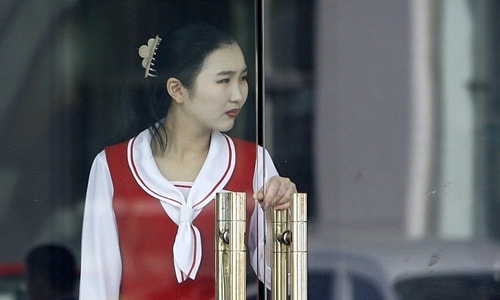
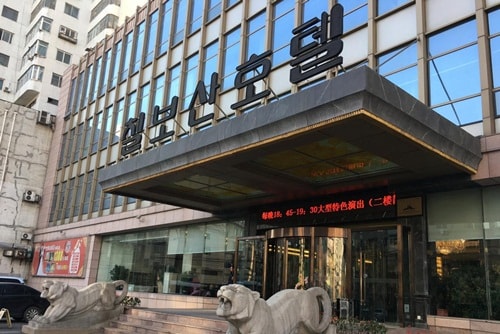
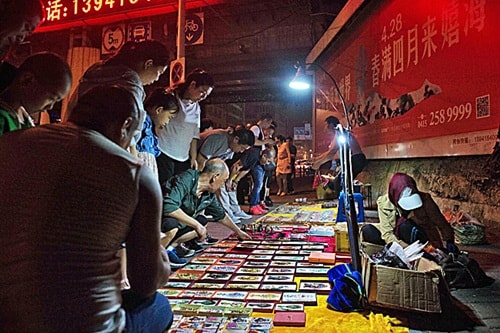
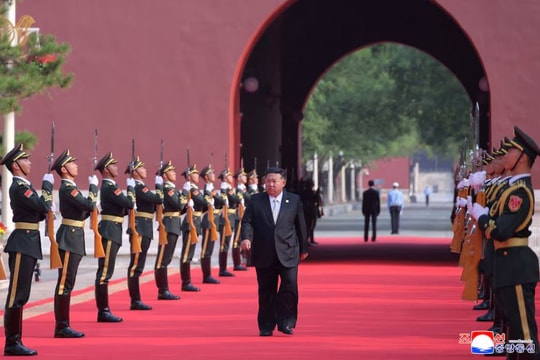


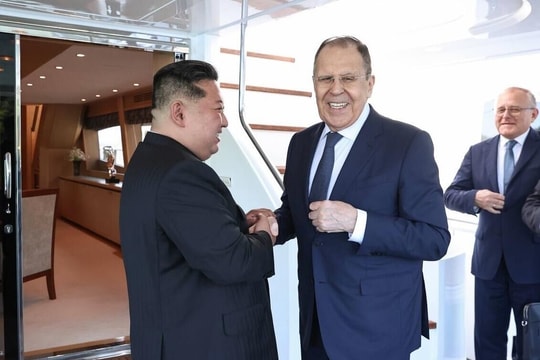
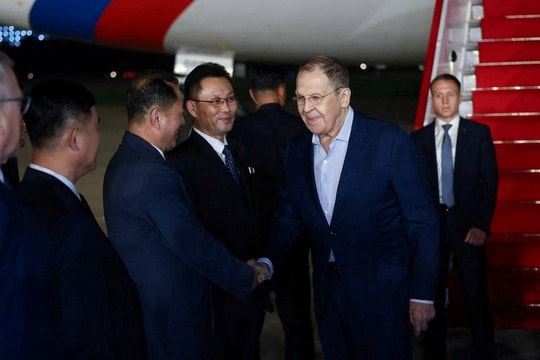
.jpg)

